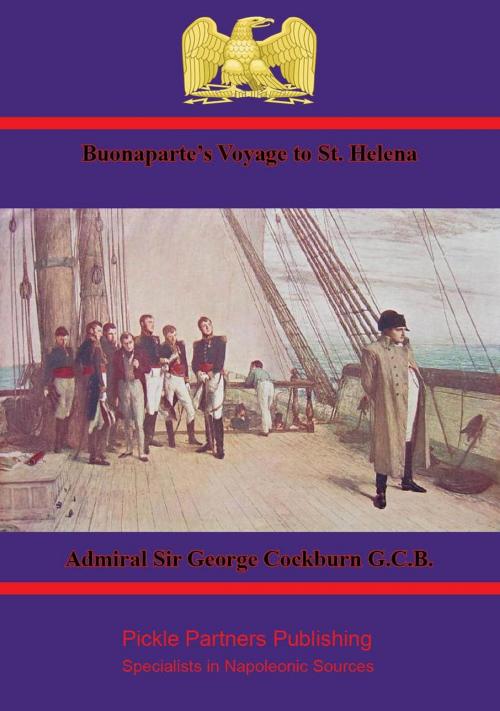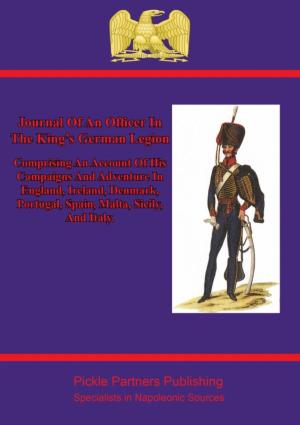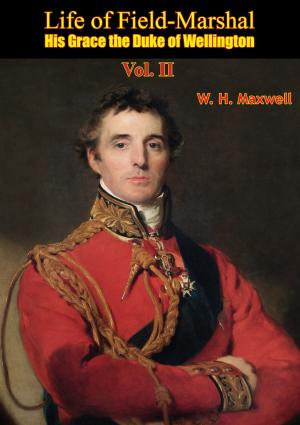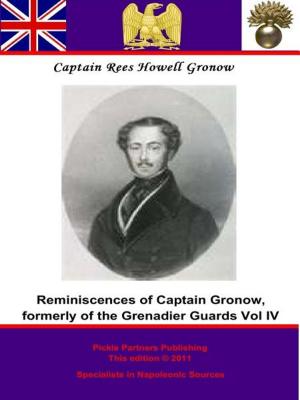Buonaparte’s Voyage to St. Helena
Comprising the Diary of Rear-Admiral Sir George Cockburn
Nonfiction, History, Spain & Portugal, France, Military| Author: | Admiral Sir George Cockburn G.C.B. | ISBN: | 9781908902399 |
| Publisher: | Wagram Press | Publication: | May 1, 2012 |
| Imprint: | Wagram Press | Language: | English |
| Author: | Admiral Sir George Cockburn G.C.B. |
| ISBN: | 9781908902399 |
| Publisher: | Wagram Press |
| Publication: | May 1, 2012 |
| Imprint: | Wagram Press |
| Language: | English |
After the defeat of Waterloo and the subsequent rout of the fragile French army’s morale, all Europe craved peace. In the minds of many, there was one man who must be removed from the political landscape; a stumbling block to any lasting peace. Napoleon was forced out of Paris and escorted to the west of France, hoping to gain asylum in America. The ever vigilant Royal Navy cruisers dissuaded the Emperor from his plan of flight and he surrendered himself to his old foes the English; better that than the Prussians under Blücher, who were calling for his head.
The English ministers decided to send the ex-Emperor into exile, further away than his previous abode on Elba, to St Helena. The officer assigned to ferry him to the wind-swept isle was Rear-Admiral Sir George Cockburn in H.M.S. Cumberland. His diary of the journey is interesting for a number of reasons: few people outside of highest circles of continental Europe or France had met with Napoleon, and therefore first-hand sketches of him and his personality are rather rare in English. The oncoming ennui of inactivity is noticeable in Napoleon, as is the propaganda effort; the so-called “Myth of Napoleon” starts in earnest even during his last voyage as his last battle is critiqued and commented on.
A short but fascinating read.
Author —Admiral Sir George Cockburn G.C.B. (1772-1853)
After the defeat of Waterloo and the subsequent rout of the fragile French army’s morale, all Europe craved peace. In the minds of many, there was one man who must be removed from the political landscape; a stumbling block to any lasting peace. Napoleon was forced out of Paris and escorted to the west of France, hoping to gain asylum in America. The ever vigilant Royal Navy cruisers dissuaded the Emperor from his plan of flight and he surrendered himself to his old foes the English; better that than the Prussians under Blücher, who were calling for his head.
The English ministers decided to send the ex-Emperor into exile, further away than his previous abode on Elba, to St Helena. The officer assigned to ferry him to the wind-swept isle was Rear-Admiral Sir George Cockburn in H.M.S. Cumberland. His diary of the journey is interesting for a number of reasons: few people outside of highest circles of continental Europe or France had met with Napoleon, and therefore first-hand sketches of him and his personality are rather rare in English. The oncoming ennui of inactivity is noticeable in Napoleon, as is the propaganda effort; the so-called “Myth of Napoleon” starts in earnest even during his last voyage as his last battle is critiqued and commented on.
A short but fascinating read.
Author —Admiral Sir George Cockburn G.C.B. (1772-1853)











![Cover of the book The Franco-German War Of 1870-71 [Illustrated Edition] by Admiral Sir George Cockburn G.C.B.](https://www.kuoky.com/images/2014/june/300x300/9781782892366-5wZe_300x.jpg)



